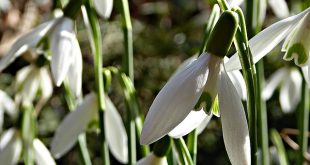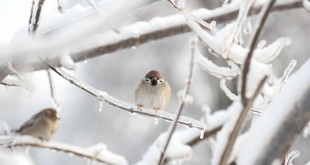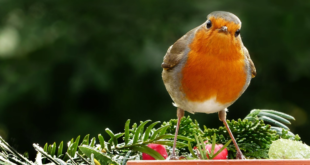Protecting Your Garden Throughout the Winter
The days are slowly getting shorter, which means that now is a good time to begin preparing your garden for the frost if you haven’t yet. The colder months don’t seem like the best time for you to spend outdoors, but if you want to make sure your plants live through winter, you need to give them a fighting chance throughout the coming months. Here’s how to protect your garden from the cold:
Cover your plants
Firstly, it’s worth noting that not all of your plants can survive the cold. Plants are usually classified into four types — tender plants, hardy plants, wood hardy, and flower-bud hardiness — according to the minimum temperatures that they can tolerate. Your hardy and wood hardy plants can survive the cold, but your tender plants need to either be brought inside or covered. For the latter option, The English Garden suggests using horticultural fleece, plastic sheets, or thinly woven polyester covers.
Add mulch
Winter mulching serves an entirely different purpose from spring mulching. In spring, for instance, you add mulch to keep weeds away, retain moisture, and feed the soil. Meanwhile, winter mulching is done to protect your plants from freezing, thawing, and harsh winds. When it comes to choosing the type of mulch, The Spruce recommends any loose insulating materials. It also has to be easy to handle, so straw, pine needles, and shredded leaves are good options.
Plant cover crops
Cover crops work wonders for any garden because they require very little maintenance and work to protect your garden from the cold effectively. Winter crops help build productive soil and control pests and diseases. Good Housekeeping lists some of the best cover crops you can grow, which includes rye, field peas or oats, and buckwheat. Clover and sorghum-sudangrass are also great choices.
Cover crops are also a great way to cut fertiliser costs since they can convert nitrogen gas in the atmosphere into soil nitrogen, which can greatly help your plants. Cover crops can also prevent soil erosion and conserve soil moisture as they hold soil in place and reduce runoff that can carry soil away.
Set up a winter tunnel for your vegetables
A plastic-covered tunnel can extend the life of your vegetables, especially leafy greens like hardy spinach and lamb’s lettuce. Arugula and cabbage both thrive under a winter tunnel, too. You can also use cloches or glass bells to block rain in the event of a wet winter and keep the soil warm. Just be sure to cover your plants well before sunset and remove the covers by mid-morning to prevent evaporation from ruining your plants. Tender vegetables like peppers and tomatoes especially need frost protection.
Let weeds grow
Weeds are often a gardener’s worst nemesis, but winter weeds won’t take over your garden the same way summer weeds would — they can actually help protect your garden soil from erosion and improve soil drainage. This works best for all sorts of gardens, but most especially for vegetable patches.
Don’t take your lawn for granted
On Gardener’s Club we made you a list of simple ways to improve your lawn before winter. Make sure you’ve trimmed and fed your lawn, fertilising the soil well before the first frost. This will help your garden survive the bitter cold. Don’t stop mowing, too. You need to make sure you keep your grass at least 2 inches high so that it doesn’t mat, and for this, you need to have a mower with an adjustable cutting height. The garden lawnmowers listed on Screwfix have varying cutting heights and widths that can cater to your specific needs. These can let you adjust your cutting height accordingly, as some can cut as high as 4 inches. You can stop mowing your lawn only when you notice the grass growth starting to slow.
Help wildlife
Another known garden challenge is wildlife, but during winter, life can be fairly hard for them so it’s best to help them out instead of shooing them away. You can provide birds, hedgehogs, squirrels, and other small mammals with food and shelter. Remember to leave only a small amount of food and water as you don’t want them to be fully dependent on your garden. Leave out empty boxes for birds, too.
Winter is a tempting time to stay indoors but it’s actually the most crucial time to get some work done in the garden — especially if you want to keep your garden healthy for the year ahead.
Guest contributor, Toby Carroll gives advice on winter gardening
 Gardeners Club The Gardeners Club is a free to join online club for everyone with an interest in gardening and gardens.
Gardeners Club The Gardeners Club is a free to join online club for everyone with an interest in gardening and gardens.






